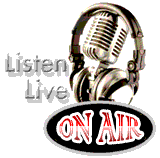Review: Two dozen sports reminiscences ponder the father-son connection

There have been enough baseball books written about fathers and sons playing catch, it seems, to fill an entire book store. It is sports literature ad nauseam, and it's never-ending.
As proof, there is yet another book on this very same subject. Only this time, it offers a twist as well as a sense of relief, because the topic isn't just about baseball, but father-son relationships involving different sports. It's titled, appropriately, "Fathers & Sons & Sports." And because it's Father's Day, this book not only would be a great gift for dad, but a great read, too. That's because the book doesn't have just one author, but 24 writers sharing their remembrances of what it was like growing up with the man in the house.
Some of these writers are better known nationally: Norman Maclean, author of "A River Runs Through It"; Buzz Bissinger, John Ed Bradley, and Hall of Fame slugger Hank Aaron. But one of the most revealing, yet moving, pieces is written by Ron Reagan, son of the president.
Sports relationships between fathers and sons sometimes, regrettably, have a competitive edge. This was the case with the Reagans. The son recalls a swimming race with his father, who was very athletic; he was a college football player who had saved 77 lives over seven summers as a young lifeguard on the banks of a river in Illinois.
His son Ron wasn't nearly as athletic, except in the swimming pool, where the son acquired a flip turn that suddenl
made him competitive. His retelling of their last father-son race not only is interesting reading, but it's also revealing because the president, like "The Great Santini," hated to lose — not only to Cold War leaders, but even to family members.
Dad a full-time bookie
Michael J. Agovino, a onetime editor at Esquire and Newsweek, writes about his father, a full-time bookie, who funded his family through both good times and, mostly, incredible financial pressures. Author James Brown — not the great fullback or television studio sports host — revists teaching his sons the same dirty wrestling moves he used to survive his youthful grappling days.
One of the most moving pieces in the book is by Mark Kriegel, author of a biography on Joe Namath, who writes about the relationship between basketball coach Press Maravich and his son Pete, the game's most flamboyant player ever, but who was allowed by his dad to put showmanship over fundamentals — and winning.
Aaron writes about his father taking him to see Jackie Robinson play. Jeremy Schaap recalls how his father, famed journalist Dick Schaap, brought him along to various sporting events that planted the seed for his own journalism career.
Donald Hall does write about throwing baseballs back and forth to his father, but this chapter takes on a slightly different meaning, in that the father gave up a potential baseball career to become a family man, and a 24-7 father to his son.
Then Hall, the son, loses all perspective.
"Baseball is fathers and sons playing catch," he writes to close out his chapter, "lazy and murderous, wild and controlled, the profound archaic song of birth, growth, age and death. The diamond encloses what we are."
Not our only game
It's none of that. Baseball is a game, nothing more, nothing less. It is truly America's game, but it's not our only game, thus it doesn't speak to the core of what we are as a country. Fathers and sons also play catch with footballs. So, possibly, the gridiron encloses who they are. Let's not get too carried away.
Bill Geist, in fact, writes about how a father tries to live through his son in something as far down the baseball totem pole as Little League, and how that whole painful experience goes back to the author's own dealings with his father.
John Buffalo Mailer remembers the first time his father, Norman Mailer, put him in the boxing ring. He was 4, and "when your time came, you just had to fight." His father had well-documented punching skills, but he let his son, then 3, knock him down playfully, thus making the son believe he possessed "the best right hook in the world."
One of the saddest stories, written by John Jeremiah Sullivan, is about his sharing the same house with a sportswriter father who took better care of his prose than himself, and how he deteriorated before his son's eyes, though it didn't prevent the son from launching his own literary dreams.
"Fathers & Sons & Sports" offers a wide, emotional playing field of father-son experiences, which is the strength of the book. There is something here for every father and son whose worlds are dominated by one sport or all sports.
It's a good catch.

.jpg)





